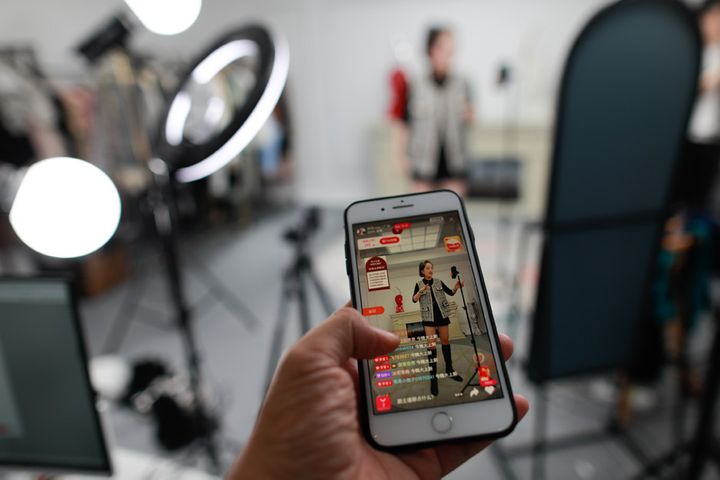 China's Luxury Sector Embraces E-Commerce as First-Quarter Sales Slide, Report Says
China's Luxury Sector Embraces E-Commerce as First-Quarter Sales Slide, Report Says(Yicai Global) Feb. 26 -- The luxury goods sector in China is branching out into e-commerce with live-streaming sales models, customized services and fast courier options as it braces for a 20 percent drop in first-quarter revenue due to the novel coronavirus outbreak, according to a new report.
Conservative by nature, luxury brands prefer to operate through brick-and-mortar stores to ensure a personalized and enhanced experience for their customers. But many of their retail outlets remain shut because of the epidemic gripping the country.
Footfall at high-end shopping malls and luxury flagship stores in the major cities of Wuhan, Shenzhen, Guangzhou, Shanghai and Beijing plunged 80 percent during the Chinese New Year holiday compared with the year before, according to the report by Shanghai Jiao Tong University's Luxury Brand Research Center.
Revenue at France's LVHM Moet Hennessy-Louis Vuitton, the world's largest luxury goods group, has already dropped 3 percent for fiscal 2020 on losses in the China market.
The Covid-19 virus is expected to bring China's luxury goods sector closer to online outlets, the report said. High-end retailers are looking to bring the same exclusivity and tailored shopping experience to the world of e-commerce that consumers would get in their physical stores.
French luxury goods house Cartier joined Alibaba Group Holding's Tmall Luxury Pavilion last month, making it the Swiss Richemont Group's first brand to start a standalone boutique on China's most popular business-to-consumer marketplace.
The high-end jeweler is offering online shoppers personalized services such as complimentary engraving, embossing, gift-wrapping and customized card services for select items.
LVHM's Kenzo fashion house followed suit in January, becoming the first brand under the Paris-based group's fashion and leather goods division to open a standalone store on a Chinese e-commerce provider.
Asia's biggest upmarket online sales platform Secoo Holding is combining live-streaming with fast deliveries. Several luxury brands including Armani, Prada and Hermes have set up exclusive broadcasting studios on Secoo. So long as there remains stock in Beijing, their products can be quickly couriered to the client.
Beijing-based Secoo is also teaming up with global high-end fashion brands Moschino, Tods, Versace, Philipp Plein, Lanvin and Giuseppe Zanotti to live-broadcast their shows from this year's Milan and Paris fashion weeks on its website.
Online businesses have also been affected by the virus contagion. Sales of high-end beauty products have slumped by 40 percent, and of general cosmetics by around 30 percent, as people socialize less, according to US consulting firm Bain Capital, which used data provided by Tmall.
The epidemic's negative impact on the luxury sector and its supply chains should not last long, the report said. Consumption should return to normal by October 2021 at the latest. Whether or not conditions improve before that depends on how long the epidemic lasts, it added.
Editors: Liao Shumin, Kim Taylor